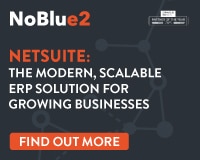One of our exhibitors, epicor, explains all in ‘Digital Supply Chain: Transforming Business Operations with AI and IoT’ Here is a snippet from their blog:
Supply chains span the globe, encompassing all the steps that go into sourcing the raw materials, manufacturing goods, and getting the final product to the end customer—who is often located thousands of miles away from the factory
Lay on other complexities—customizations, customer service, and compliance—and supply chains are more challenging to manage than ever, especially with different rules at play throughout different countries and jurisdictions. And the need to go toe-to-toe against the rapid-fire logistics of Amazon only raises the stakes.
To win and keep customers today, every step of the supply chain must function flawlessly—from before the product is produced to long after the customer has it dropped off at their doorstep.
That’s where digital supply chains come in. A digital supply chain leverages big data, artificial intelligence (AI), and the Internet of Things (IoT) to transform supply chain management (SCM) for maximum agility, adaptability, and scalability.
Today, technology captures big data throughout every inch of the process and then uses real-time, automated analysis tools to share company insights and actionable solutions.
In this article, you’ll learn more about digital supply chains and how they differ from traditional ones. You’ll also see examples of digital supply chains in action, the benefits and risks of adoption, and what the future may hold in store.
Understanding the Digital Supply Chain
A digital supply chain is like a traditional one but digitalized using AI and IoT technologies.
Traditional Supply Chain
A traditional supply chain involves the linear process of moving goods from suppliers to manufacturers to stores to customers, relying heavily on manual processes. It may conjure up images of a warehouse supervisor walking the floor with a pen tucked behind their ear and clipboard, as they manually count freight loads or ask other staff to “Get Santa Fe on the phone” to find out why there’s a shipping delay.
How a Digital Supply Chain Differs
In a digital version, there’s nothing to walk around, count, and jot down on a clipboard. And there’s no need to “call Santa Fe” to figure out where the iron is. With handheld scanning devices and connected real-time data, warehouse leadership already knows the answers. Instead of manually digging for data, they can concentrate on higher-level planning and strategy.
Many supply chains have one foot stuck in both camps. These companies may use computers and electronic devices to manage many work processes, but not all systems are interconnected. This delays communication where different business units have access to different data, and activities must be coordinated through a mix of phone calls, emails, faxes, meetings, and paper-based documentation.
Many businesses, if not most, rely on a mix of manual and updated digital processes.
Upgrading to a fully digital supply chain can be a resounding win. Rather than limiting AI, IoT, and big analytics to isolated parts of your supply chain, integrating them across the entire system empowers your entire workforce. The whole organization can benefit from faster, smoother collaboration and decision-making. It’s a big win for the customer, too.
Future of the Digital Supply Chain
Advancements in AI and IoT are transforming the digital supply chain, leading to greater speed, efficiency, and adaptability.
Key Emerging Trends:
- Blockchain integration for enhanced transparency and traceability in the supply chain. Blockchain can create a permanent, unalterable record of transactions to increase trust and minimize fraud.
- Robotic process automation (RPA) to automate repetitive tasks. RPA can handle high-volume and rule-based tasks, freeing up workers for strategic human-centric activities that bots can’t perform.
- Edge computing processes data closer to where it’s being generated for improved speed and reduced internet bandwidth. This helps supply chains maintain real-time tracking with faster data analysis.
Learn from Epicor, and other ERP providers at our itSHOWCASE events. Register to meet with exhibitors here





